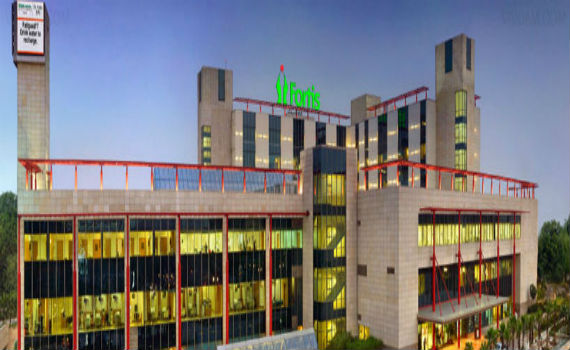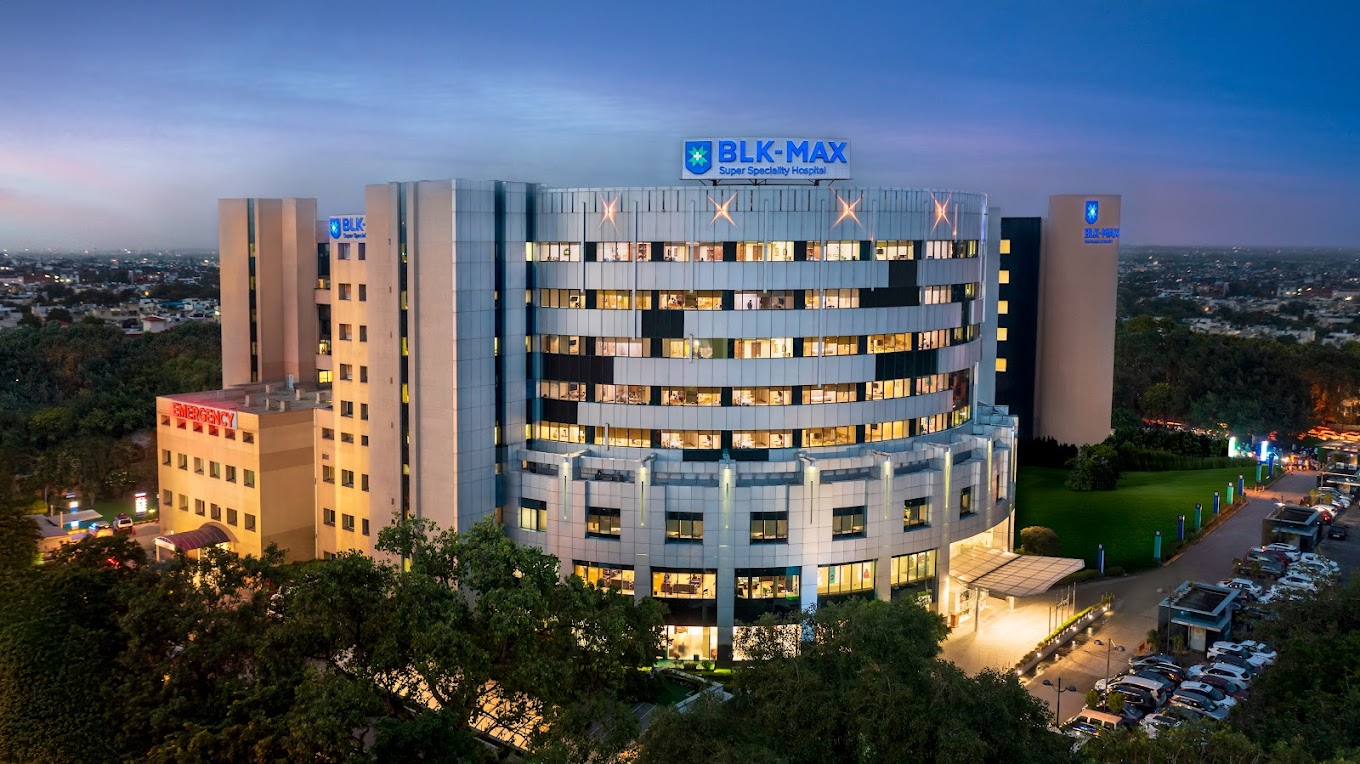Brain Tumor Treatment in India: A Comprehensive Guide for International Patients

Brain Tumor Treatment in India: A Comprehensive Guide for International Patients
Brain Tumor Treatment in India
Understanding Brain Tumors
Brain tumors are complex conditions that manifest as masses of abnormal cells within the brain. These growths are quite diverse, varying significantly in their characteristics and impact on health. They are primarily categorized into two types:
1. Benign Brain Tumors: These tumors are non-cancerous. They typically grow slower than malignant tumors and are less likely to spread. However, their location in the brain can still make them a serious health concern. Depending on their size and where they're pressing against, they can disrupt vital brain functions.
2. Malignant Brain Tumors: These are cancerous tumors, characterized by their faster growth rate and potential to invade and damage surrounding brain tissue. They can also spread to other parts of the brain or spinal cord. Their aggressive nature makes early detection and treatment crucial.
The treatment plan and prognosis for anyone with a brain tumor hinge on various factors:
- Type of Tumor: Understanding whether the tumor is benign or malignant is crucial as it influences the treatment approach and potential outcomes.
- Size of the Tumor: The size can affect which symptoms appear and how manageable they are.
- Location in the Brain: The brain controls everything from movement and sensation to thought and emotion. A tumor in any part of the brain can disrupt specific functions, depending on its exact location.
Understanding brain tumors involves recognizing the intricate balance between the type of tumor, its growth pattern, and its interaction with the complex and delicate structures of the brain. This knowledge is key to formulating effective treatment strategies and providing the best care possible.
Symptoms
Identifying Symptoms of Brain Tumors
The symptoms of brain tumors can vary widely depending on the tumor's size, type, and location in the brain. Essentially, as the tumor grows, it can press on or disrupt the normal function of the brain, leading to a range of symptoms. Some of the common symptoms include:
- Persistent Headaches: These aren't just your typical headaches. They can be more frequent, severe, and may not get better with usual headache remedies.
- Seizures: Changes in the brain's electrical activity can lead to seizures. They can manifest in various ways, from convulsions to more subtle symptoms like staring spells or twitching of limbs.
- Nausea or Vomiting: These symptoms, especially if they occur without other digestive issues, can be a sign of increased pressure inside the skull due to a brain tumor.
- Weakness or Loss of Sensation in Limbs: A tumor in certain parts of the brain can affect the strength or sensation in different parts of the body, leading to weakness or numbness, typically on one side.
- Balance or Coordination Issues: You might experience difficulty walking, maintaining balance, or coordinating movements, which could be a sign of a tumor affecting the cerebellum or other parts of the brain involved in motor control.
- Speech Difficulties: This might manifest as trouble finding the right words, speaking clearly, or understanding language, depending on the tumor's location in the brain regions responsible for language processing.
- Vision Problems: This can include blurred vision, double vision, or loss of peripheral vision. A tumor in or near the optic nerve or certain parts of the brain can impact your sight.
It's important to remember that these symptoms can also be caused by other, less serious conditions. However, if you're experiencing any persistent or worsening symptoms, it's crucial to consult a healthcare professional for a thorough evaluation. Early detection and diagnosis are key to effectively managing and treating brain tumors.
Diagnosis
Diagnosing Brain Tumors: A Step-by-Step Guide
Diagnosing a brain tumor is a meticulous process that involves several steps. Each step is designed to gather as much information as possible about the symptoms, the tumor, and its impact on brain function. Here's how it typically unfolds:
1.Neurological Exam:
- What it involves: This comprehensive exam checks various aspects of your nervous system. The doctor will assess your vision, hearing, balance, coordination, strength, and reflexes.
- Why it's done: The purpose is to identify any abnormalities or changes in your brain function that might indicate the presence of a tumor.
2.Imaging Tests:
- Types of tests: MRI (Magnetic Resonance Imaging) or CT (Computed Tomography) scans are the most common imaging tests used.
- What they show: These tests provide detailed images of your brain. They can show the presence of a tumor, its size, and its location. Sometimes, a contrast dye is used to provide clearer, more detailed images.
- Why they're important: Imaging tests are crucial for understanding the exact characteristics of the tumor, which is essential for planning the best course of treatment.
3.Biopsy:
- How it's performed: A biopsy involves taking a small sample of tissue from the tumor. This can be done during surgery to remove the tumor or as a separate procedure using a needle guided by imaging tests.
- What it reveals: The collected tissue is examined under a microscope to determine the type of cells present and the aggressiveness (grade) of the tumor.
- Purpose: The information from a biopsy is critical. It confirms whether the tumor is benign or malignant and guides the treatment plan.
These diagnostic steps are fundamental in establishing a clear and accurate understanding of a brain tumor. The detailed insights they provide enable healthcare professionals to develop a treatment strategy that is precisely tailored to the individual's condition, maximizing the chances of a successful outcome.
Treatment Options in India
Navigating Brain Tumor Treatment Options in India
India's healthcare system offers a range of state-of-the-art treatment options for brain tumors, ensuring patients have access to the latest advancements in medical technology and surgical techniques. Here's an overview of some of the sophisticated treatment options available:
1.Craniotomy
- What it is: A craniotomy is a surgical procedure where a bone flap is temporarily removed from the skull to access the brain. This opening allows surgeons to remove the tumor or take a tissue sample for biopsy.
- When it's used: It's often the go-to option when the tumor needs to be removed surgically or when a precise diagnosis requires a tissue sample.
- Procedure Details: The surgery is performed under general anesthesia. Post-surgery, the bone flap is usually replaced, and the scalp is closed using sutures or staples.
- Recovery: Recovery time varies based on the individual's condition and the complexity of the surgery. Hospital stays can range from a few days to a week, with continued recovery at home.
2.Stereotactic Surgery
- What it is: Stereotactic surgery, or radiosurgery, is a non-invasive treatment that uses focused radiation beams to target and destroy tumor cells. Despite the name, it's not a traditional surgery and doesn't involve incisions.
- How it works: High-energy rays are precisely directed at the tumor from different angles. The intense dose of radiation at the focal point destroys the tumor cells while sparing the surrounding healthy tissue.
- Benefits: This technique is especially beneficial for tumors that are hard to reach, or for patients who are not candidates for traditional surgery due to health reasons. It's also known for shorter recovery times and fewer side effects compared to traditional surgery.
3.Endoscopic Brain Surgery
- What it is: Endoscopic brain surgery uses an endoscope, a thin, flexible tube with a light and camera at the end, to remove tumors through small openings in the skull or through natural openings like the nostrils.
- Procedure Details: The surgeon guides the endoscope to the tumor site and uses specialized instruments to remove the tumor.
- Advantages: This minimally invasive approach generally results in less pain, fewer complications, shorter hospital stays, and faster recovery times compared to traditional open surgery.
In India, these treatment options are delivered by highly skilled neurosurgeons and supported by advanced medical infrastructure. Each treatment plan is tailored to the patient's specific condition, ensuring a personalized approach to care. If you're considering these treatments, it's essential to consult with healthcare professionals who can provide detailed information based on your individual health needs and guide you through the decision-making process.
Comprehensive Guide to Brain Tumor Treatment and Recovery in India
Navigating through brain tumor treatment involves a series of carefully planned steps, from the initial evaluation to post-surgery recovery and follow-up. India's healthcare system is equipped to provide a thorough and patient-centric approach to each phase. Here's what the journey typically involves:
Treatment Procedure and Recovery
1.Pre-Surgery Evaluation:
- What to expect: This stage includes detailed consultations with your medical team, advanced imaging tests (like MRI or CT scans), and thorough planning for the surgery. It helps in mapping out the exact size, location, and type of the tumor.
- Purpose: The goal is to ensure a clear understanding of the treatment path and to prepare you, both mentally and physically, for the upcoming procedure.
2.Surgery:
- Procedure selection: Depending on the tumor's characteristics (location, size, type), your medical team will choose the most suitable surgical approach, be it a craniotomy, stereotactic surgery, or endoscopic brain surgery.
- Hospital stay: The duration of your stay in the hospital can vary. Factors include the specific type of surgery performed and your individual rate of recovery.
3.Post-Surgery Care:
- Care components: After the surgery, the focus shifts to monitoring for any complications, managing pain, and initiating rehabilitation services to aid your recovery.
- Goal: This phase is vital for ensuring your comfort, promoting healing, and paving the way for a smooth and efficient recovery process.
4. Follow-Up:
- Importance of regular check-ins: Regular follow-up appointments are essential. They typically involve imaging tests and medical consultations to ensure that the tumor has been effectively treated and to monitor for any signs of recurrence.
- Long-term management: These visits are also key in managing any long-term effects of the treatment and ensuring your continued well-being.
Post-Surgery Follow-Up
- Continued vigilance: Regular follow-ups with your healthcare team, including imaging tests and consultations, are crucial for a comprehensive recovery journey and for the early detection and management of any potential recurrence.
Estimated Stay Duration
For international patients considering treatment in India, the estimated duration of stay is as follows:
- Hospital Stay: You may expect to stay in the hospital for about 3 to 10 days post-surgery, though this can vary based on the specifics of your surgery and your personal recovery progress.
- Recovery in India: It's advisable to plan for an additional few weeks in India post-discharge. This time allows for initial recovery, follow-up consultations, and ensuring that you're fit to travel back to your home country.
Treatment Success Rate
- Factors influencing success: The success rate of brain tumor treatment can vary significantly and is influenced by factors such as the type and stage of the tumor, its precise location in the brain, and your overall health condition.
- Global standards in Indian healthcare: Hospitals in India are renowned for their high standards of medical care and have success rates that are on par with leading healthcare centers around the world.
Navigating through the treatment of a brain tumor is undoubtedly challenging, but India's advanced medical infrastructure, coupled with its skilled healthcare professionals, ensures that you have access to some of the best care available globally. Each step of your treatment and recovery will be handled with the utmost expertise and compassion, keeping your health and comfort as the top priority.
Understanding the Cost of Brain Tumor Treatment in India (In USD)
India is known for offering exceptional medical care at competitive prices, especially for international patients seeking treatment for complex conditions like brain tumors. Here's a detailed look at the approximate costs in USD for various aspects of brain tumor treatment in India. Remember, these costs can vary based on the specific needs of the patient, the chosen hospital, and the exact treatment plan.
1. Initial Consultation and Evaluation:
- Cost Range: $100 - $300
- Explanation: This initial phase includes a comprehensive review with a neurologist or neurosurgeon, discussing your medical history, symptoms, and potential treatment paths. This cost may also cover preliminary diagnostic tests.
2. Diagnostic Tests (MRI, CT scans):
- Cost Range: $400 - $1,500
- Explanation: Advanced imaging tests like MRI and CT scans are crucial for a detailed view of the brain structure and for pinpointing the location and size of the tumor. The cost varies based on the specific type of imaging and the need for contrast materials.
3. Surgery (Craniotomy, Stereotactic Surgery, Endoscopic Surgery):
- Cost Range: $5,000 - $20,000
- Explanation: The cost of brain surgery can vary significantly based on the complexity of the procedure, the surgical technique used (traditional craniotomy, stereotactic surgery, or endoscopic surgery), and the length of the hospital stay. This includes the surgeon's fees, anesthesia, hospital facilities, and post-operative in-hospital care.
4. Post-Surgery Care and Rehabilitation:
- Cost Range: $300 - $1,500
- Explanation: After surgery, you may require additional care for pain management, wound care, and rehabilitation services to aid recovery. The cost depends on the level of care and the length of the rehabilitation period.
5. Follow-Up Consultations and Tests:
- Cost Range: $50 - $300 per visit
- Explanation: Regular follow-up visits with imaging tests and consultations are crucial after brain tumor surgery. These visits help monitor your recovery, ensure the effectiveness of the treatment, and check for any signs of recurrence.
6. Additional Treatments (if required, like Radiation or Chemotherapy):
- Cost for Radiation Therapy: $2,500 - $10,000
- Cost for Chemotherapy: $1,000 - $5,000 per cycle
- Explanation: Depending on the type of brain tumor and the surgical outcome, additional treatments like radiation therapy or chemotherapy may be necessary. The costs vary based on the type, frequency, and duration of treatment.
These are estimated costs, and actual expenses can vary based on individual circumstances and the specific treatment plan recommended by your healthcare provider. Many hospitals in India offer comprehensive packages for international patients, which can include treatment costs, accommodation, local transportation, and sometimes post-treatment recovery services. It's advisable to have open communication with your healthcare provider and understand the detailed cost breakdown and inclusions in any package before starting your treatment.
Final Thoughts on Opting for Brain Tumor Treatment in India
Selecting India for your brain tumor treatment offers you the opportunity to receive world-class medical care without the hefty price tag often seen in other countries. The journey, though, requires careful planning and consideration of various aspects, including your specific healthcare needs, travel arrangements, accommodation, and the roadmap for post-treatment care and follow-up.
Engaging deeply with medical professionals, understanding your treatment options, and the potential recovery trajectory are paramount. Considering the assistance of a medical facilitator might also be beneficial, as they can help streamline the entire process, from hospital appointments to local support in India.
Always remember, the key to a successful treatment journey lies in direct and transparent communication with healthcare professionals. Personalized medical advice, tailored to your unique health condition, is indispensable for making informed decisions and ensuring the best possible outcomes.
Disclaimer
The information provided here serves as a general guide and should not be taken as medical advice. The treatment costs and procedures mentioned are approximate and subject to variation based on individual health conditions, the specifics of the treatment plan, and the healthcare facility chosen. It is strongly recommended to consult directly with healthcare professionals for personalized advice and to obtain an accurate and comprehensive understanding of treatment options, procedures, and associated costs. The responsibility for any treatment decision and its outcomes rests solely with the individual and their healthcare provider.
Dr. Anil Kumar Kansal
Neurosurgery
29YRS of experience
BLK-Max Super Speciality Hospital
New Delhi, India
Dr. Surender Kumar Dabas
Surgical Oncology
21YRS of experience
BLK-Max Super Speciality Hospital
New Delhi, India






.png)

.png)
.png)

.png)
